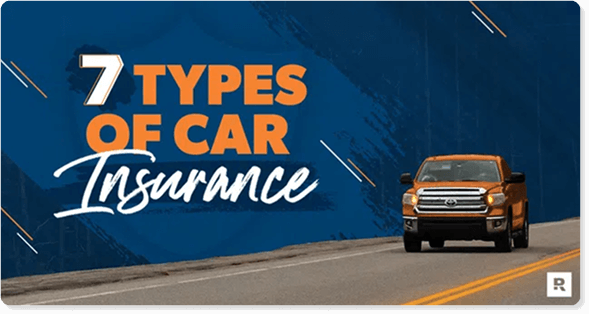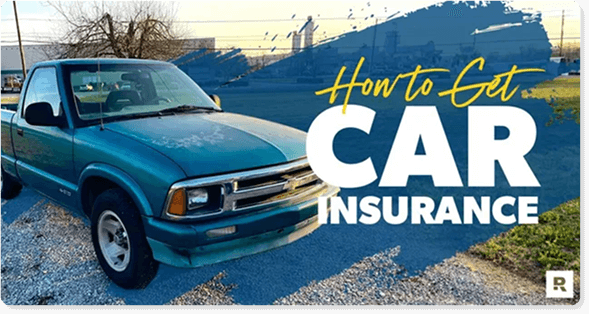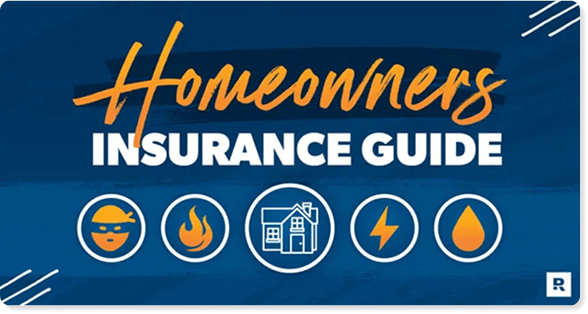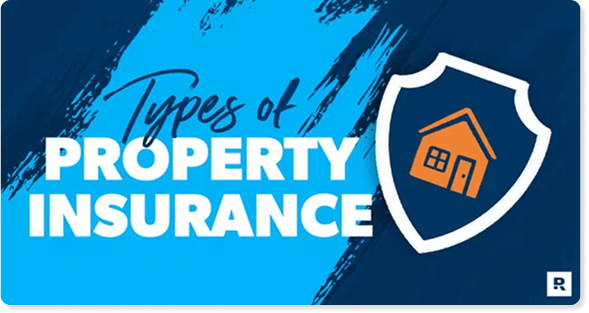

Free Help From an Agent You Can Trust
There’s no cost to work with a RamseyTrusted® agent. They’ll do the shopping, explain the fine print, and help you get covered—without charging you a thing. Plug in your zip code below to connect with an agent in your area to get started.


Who Are RamseyTrusted Pros?
RamseyTrusted pros are your trusted guides to insurance—vetted experts who have your best interests at heart. They’ll shop the insurance market to find discounts and deals for you at no extra cost, saving you time and money. And when it comes to protecting what matters, they make sure you’ve got the coverage you need—and nothing you don’t.
Are you an insurance pro looking to work with our fans? Click here.
What to Know About Home and Auto Insurance
Home and auto insurance help protect where you live and how you move. So they’re essential to keeping your life running smoothly. Damage to your home or vehicle can be expensive! Getting them insured is a must (and it’s usually required by law).


Home Insurance

Catastrophe Insurance
Auto Insurance
The Main Types of Car Insurance
With so many types of car insurance to choose from, it’s easy to feel overwhelmed—or worse, to settle for the bare-minimum coverage required by your state. But understanding your car insurance doesn’t have to be complicated. With a quick overview of the most common types of car insurance, you can make confident decisions that actually protect you—and your wallet—if something goes wrong on the road.
In this guide, we’ll break down the seven main types of car insurance coverage, helping you choose the right protection for your needs.
How to Get Car Insurance
Car insurance is legally required in nearly every state, but understanding how to actually get the right coverage can be challenging. From choosing the best provider, or determining the coverage you need, to comparing quotes—it can get overwhelming quick.
Luckily, we’ve simplified the process for you. This guide will walk you through every step of getting car insurance so you can secure the protection you need without the stress.
Understanding Liability
Car Insurance
You probably already know liability insurance is a must-have—but maybe you’re wondering what exactly it covers. While liability insurance might not be the flashiest part of owning a car, its benefits are invaluable if you’re ever involved in an accident. It helps cover costs related to injuries or damages you’re legally responsible for. Let’s dive in and explore everything you need to know about car liability insurance so you can drive with confidence.
What to Know About
GAP Insurance
The term GAP insurance makes perfect sense once you understand its purpose: to fill the gap between what you owe on your car loan and your vehicle’s actual resale value in case it’s totaled or stolen. If you have a car loan, GAP coverage can help you avoid potentially huge unexpected out-of-pocket expenses. In fact, some lenders require it. But it’s not always your best option. Let’s see what GAP insurance is all about.
How Does Working With a Pro Work?
Select Insurance Types
Choose the insurance you’re looking for and match with a RamseyTrusted insurance pro.
Pros Contact You
Your pro will give you a call within 24 hours and ask for basic information.
Pros Compare Quotes
They’ll shop home and auto insurance quotes from multiple carriers to find you the right policy at the best price.

Home Insurance
All About Homeowners Insurance
If something happened to your home, would your insurance be enough to help you recover? Many homeowners are underinsured—and that puts both their property and finances at risk. This guide explains what homeowners insurance does (and doesn’t) cover so you can make informed decisions and protect your biggest investment.
The Main Types of Property
Insurance
If you own a home or any property, this is the coverage for you. Property insurance offers real protection that helps you feel secure no matter what life throws your way. It comes in many forms tailored to specific living situations—from rental properties to condos to mobile homes. Understanding what each type covers—and how to choose the right policy—can make all the difference in protecting your investment.
What to Know About Condo
Insurance
If you own a condo, having condo insurance isn’t optional—it’s essential. You might assume your homeowners association (HOA) has you fully covered, but that’s rarely the case. While condo insurance shares similarities with homeowners and renters insurance, it comes with unique details and responsibilities. In this guide, we’ll break down everything you need to know about condo insurance so you can feel confident your home is properly protected.
Understanding Renters Insurance
If you’re renting, renters insurance isn’t just a good idea—it’s a smart financial move. Many renters underestimate the value of their possessions, leaving themselves unprotected in case of fire, theft or other damage. Renters insurance acts as a safety net—and in many cases, landlords require it. Yet, surprisingly, most renters still go without it. In this guide, we’ll explain why renters insurance is so important and walk you through exactly how to get the right coverage.
All About Title Insurance
Title insurance is a little-known but essential part of buying and owning a home. This coverage has to do with any possible title disputes over who really owns your property. The risk of losing your home through lawsuits or legal mix-ups is real, and you need title protection to head that off—for both yourself and your lender if you have one.
Catastrophe Insurance

What to Know About Hurricane Insurance
Hurricanes cause billions of dollars in damage each year, mostly from wind and flooding—two risks that standard homeowners insurance often doesn’t fully cover. If you live in a hurricane-prone area, having the right insurance coverage is critical. In this guide, we’ll break down what hurricane insurance includes and how to make sure your home is properly protected.

All About Earthquake Insurance
Most standard homeowners insurance policies don’t cover earthquake damage—which could leave you with massive repair costs after a quake. If you live in an earthquake-prone area, having separate earthquake insurance is essential. Our earthquake insurance guide breaks down everything you need to know to make sure your home and finances are protected.

Flood Insurance Facts
Flooding is the most common natural disaster in the U.S., and it doesn’t take a hurricane to cause serious damage. In fact, 90% of all natural disasters involve flooding—and it can come from a variety of sources.1 That’s why flood insurance is a critical part of protecting your home and finances. In this guide, we’ll break down how flood insurance works, the types available, and why it’s worth considering no matter where you live.
Frequently Asked Questions About Home and Auto Insurance
Still have questions? We’ve got answers to the most common ones about home and auto insurance. Get clarity and move forward with confidence.
-
Is it good to shop around for car insurance?
-
Well, it can be good to shop around for car insurance. After all, you can’t assume the first rate you find will be the best out there. At the same time, price isn’t the only factor when it comes to insurance. You also want to be sure you have all the coverage you need—both in terms of types and amounts—to protect yourself completely. The easiest way to get it all taken care of is to let a RamseyTrusted pro do the shopping for you. These pros are independent agents, so they have access to several insurers to compare and contrast coverages and rates. They’ll consider your whole situation and help you find the best and most affordable rate on car insurance—and if bundling makes sense, they can help you out with other coverages as well.
-
Why do you need car insurance?
-
The two primary reasons to get car insurance are to protect yourself financially and to avoid legal problems. Driving around without car insurance is illegal, dangerous and stupid—because no matter how careful you are, car accidents happen to everyone eventually. On the other hand, getting the right kinds and amount of car insurance in place is smart, safe and a whole lot cheaper than trying to pay for auto accidents out of your own pocket.
-
How long does it take to get car insurance?
-
You need one good solid hour to get car insurance (even less if you buy directly from an insurer). With a little prep—getting all your preliminary info ready, having a rough idea of what coverage you need, and determining how you want to go about getting car insurance—you’ll be on your way as soon as you hop online or get on the phone with an agent, broker or insurance company. Be sure to ask whoever you’re buying from when your policy will take effect. In most cases, you can expect it to go into effect as soon as you complete the purchase.
-
Can you get car insurance instantly?
-
You can get car insurance instantly. But before you go that route, stop and think. Instant coverage might not be your best option for savings or for your true insurance needs. Of course, it’s never wise to drive without any coverage—but don’t let your need for speed fool you into a bad purchase. It’s smarter to work with a RamseyTrusted auto insurance pro. They can shop for you, offer several options, and give you great advice about exactly what policy will serve you best.
-
How do I file a homeowners insurance claim?
-
Most insurance companies will allow you to file a claim online or through an app, or you can do it over the phone with an agent. Make sure you provide any photos you took of the damage and your list of things needing replaced.
Here’s a checklist to follow as you file an insurance claim:
- As soon as it’s safe, take pictures of the damage.
- Fill out a proof of loss statement and list of all the damaged or stolen items, along with how much it’ll cost to replace them (this is where making a list of all your stuff and updating it regularly comes in handy!).
- Make sure you have the details of the incident (fire, storm, etc.) ready to tell your insurer.
-
What’s the importance of creating a home inventory for insurance purposes?
-
If your home gets burnt to a crisp or swept away in a flood, do you really think you’ll be able to remember everything you had? Maybe even more important, will you want to sit down in the midst of that chaos and try to remember every sweater, book and electronic device you owned? To make sure you’re getting the right amount of coverage and the right payment from your carrier, it’s super important to keep an up-to-date list of your stuff. It's as easy as taking photos of your stuff!
-
What is the primary difference between homeowners insurance and renters insurance?
-
The big difference between homeowners insurance and renters insurance is that homeowners insurance includes coverage for the structure (called dwelling coverage) that pays to rebuild the house if it’s destroyed, while renters doesn’t—because you’re renting! The house doesn’t belong to you, so you don’t need to pay for insurance on it (your landlord has a policy for that). Both of them cover your personal belongings, though.
-
How does homeowners insurance work if someone gets hurt on your property?
-
There are many ways someone could get injured on your property (think slippery sidewalk, loose handrail, broken steps, an unsecure pool, and the list goes on). Homeowners insurance comes with liability insurance, which pays for medical bills, attorney and court fees (if they sue), and other injury-related costs up to the limit set in your policy. It’s one of the best buys in insurance—we recommend you have at least $500,000.





